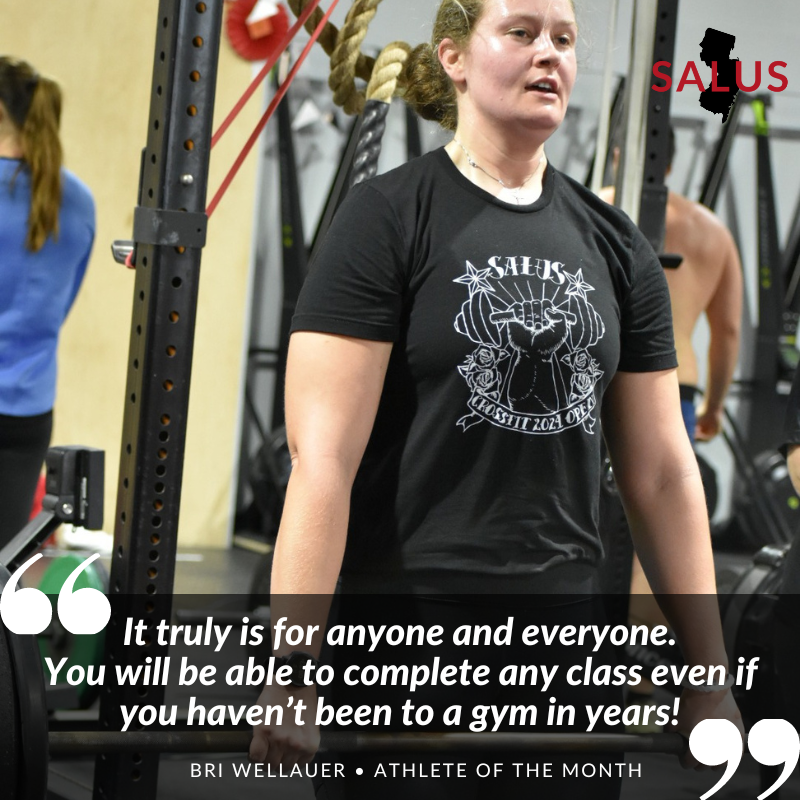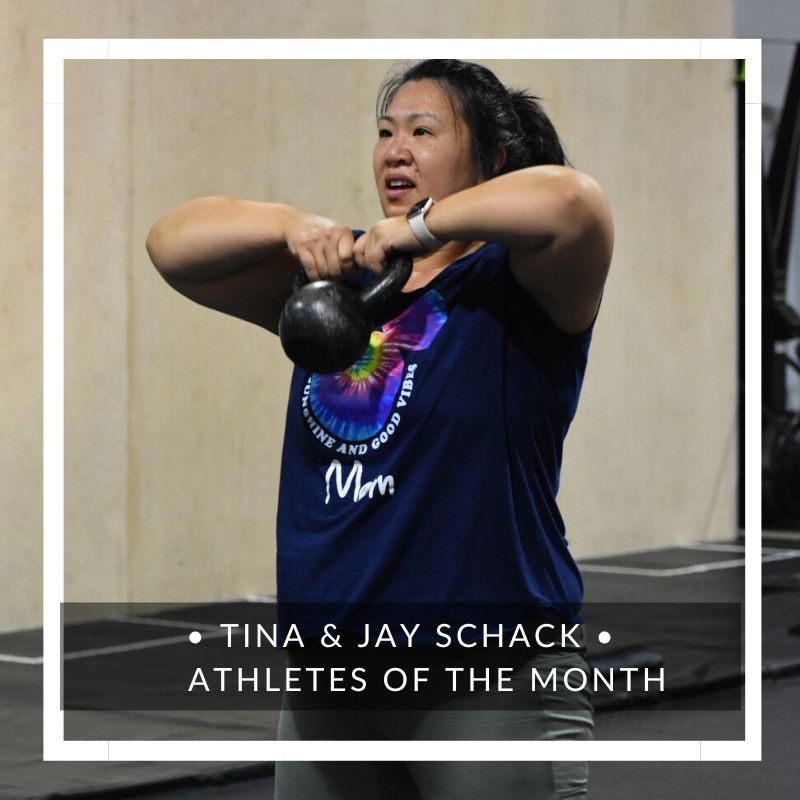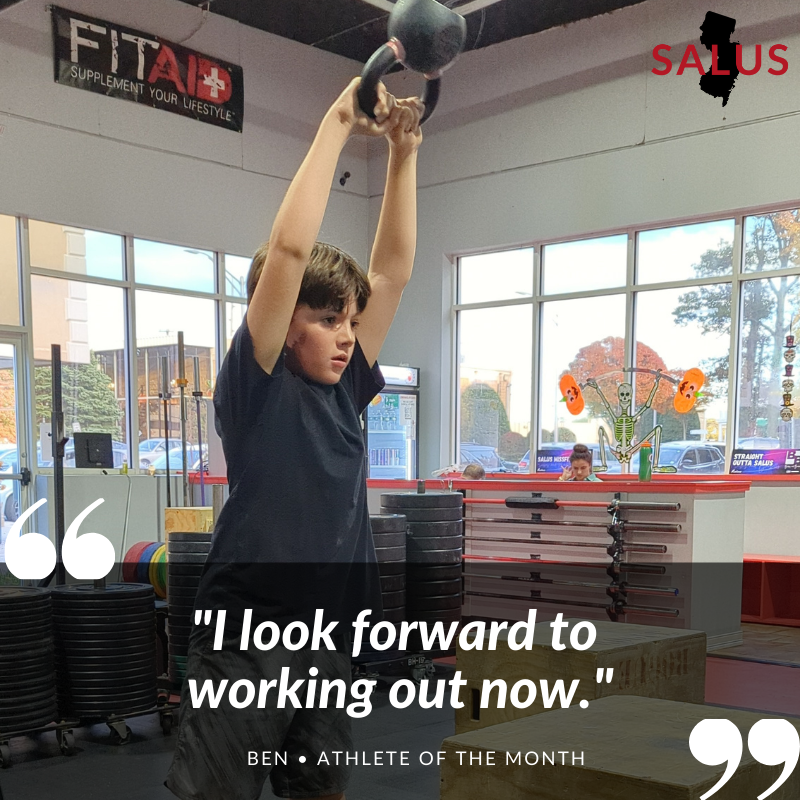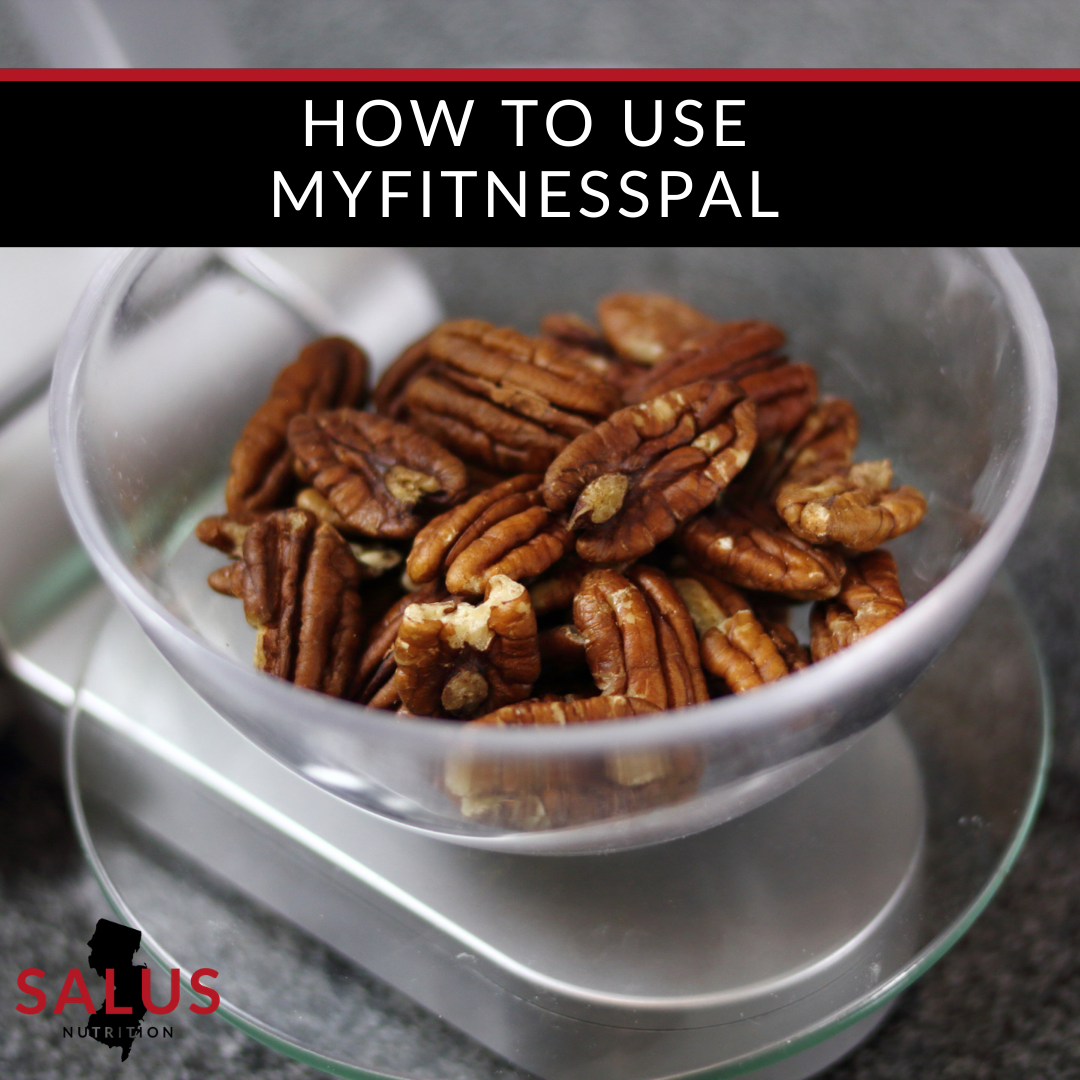Gym Updates & News
FInd Our Daily WODs, Workout Tips & Gym Updates Here

By Salus
•
12 Apr, 2024
Explore Bri's transformative fitness journey at Salus, where community support and personal resilience lead to remarkable growth and achievement. In this inspiring story, Bri shares how CrossFit Salus in Monmouth County became the cornerstone of her physical and personal development and helped her overcome challenges and reach fitness milestones. Discover the power of a supportive fitness environment with Bri's journey at Salus – a testament to the impact of the right community on achieving health and wellness goals.

By Salus
•
15 Feb, 2024
Dive into the journey of Tina and Jay, a couple whose lives have been profoundly transformed by their experiences at CrossFit Salus. From the initial rush to get wedding-ready to navigating the challenges of parenthood, their story is a testament to the power of a supportive fitness community. Witness how they’ve overcome obstacles, celebrated triumphs, and found a second family among both OG and new members alike. Through ups and downs, CrossFit Salus has been their constant, offering more than just workouts but a place where they feel at home. We’re incredibly fortunate to have the Schacks as a vital part of the Salus community. Just hear what our coaches have to say: “From the moment I saw Christina tackling wall balls in her wedding veil, I knew she was something special. Both her and Jay’s dedication and spirit (not to mention, Jay’s amazing overhead mobility!) have been an inspiration to us all from day one. We’re truly blessed to have the Schacks as part of our CrossFit Salus family.” ~Coach Angela “Jay and Christina are the perfect example of two parents who work hard to balance health while managing a busy family. They have been fixtures in my 8:30 class since I started coaching, coordinating schedules to make CrossFit a crucial part of their day. Christina is always a cheerful presence who comes with a positive mindset, aimed at improving as an athlete no matter what the workout. Jay comes with a quiet focus during class, putting to excellent use his mobility and amazing strength, while always receptive to coaching cues.” ~Coach Erin “Both athletes are always open to constructive feedback but what impresses me the most is that both Jay and Christina work within their limits prioritizing technique over the RX button. They both understand the intended stimulus of the WOD which is their primary goal. Oh, and don’t let them fool you with their kind, sweet demeanor….they are strong AF!!!” ~Coach Scott Meet the Schacks, Athletes of the Month: February 2024

By Salus
•
24 Jan, 2024
We’re thrilled to feature Marjory Arboleda as our Athlete of the Month for January 2024. Marjory, or Marj or Majo…as she casually prefers, has been a part of the Salus community since April 2023 and has since become a source of inspiration for many of us. With her infectious enthusiasm and dedication, she’s not just ...
The post Transforming Challenges into Triumphs: Meet Marjory Arboleda, Athlete of the Month appeared first on Salus.

By Salus
•
18 Jan, 2024
CrossFit for PreTeens and Teens in Middletown, NJ At CrossFit Salus in Middletown, NJ, we believe in starting a journey of fitness and health from a young age. That’s why we offer specialized CrossFit for PreTeens and Teens, a program tailored not just as a scaled-down version of adult CrossFit, but as a unique, comprehensive ...
The post Forging the Future of Fitness appeared first on Salus.

By Salus
•
12 Dec, 2023
2023-2024 Holiday Schedule Saturday, Dec. 23 CrossFit 8am & 9:15am Barbell Club hours between 8-11am Preteens/Teens 10:30am Sunday, Dec. 24 & Monday Dec. 25 Closed Saturday, Dec. 30 CrossFit 8am & 9:15am Barbell Club hours between 8-11am Preteens/Teens 10:30am Sunday, Dec. 31 Closed Monday, January 1* Special New Year’s CrossFit Mashup 9:30 & 10:45 Barbell ...
The post Holiday Schedule appeared first on Salus.

By Salus
•
19 Nov, 2023
At Salus, our community is not just about fitness; it’s about inspiring journeys and the bonds we create along the way. This month, we’re thrilled to introduce you to our Athletes of the Month, Tim and Ben, a dynamic father-son duo. Talk about taking family fitness to a whole new level! Tim, who embarked on ...
The post Strength & Family Fitness: Meet Our Athletes of the Month, Tim & Ben appeared first on Salus.

By Salus
•
07 Nov, 2023
Happy Thanksgiving Salus! Happy Thanksgiving, Salus! As we reflect on the past decade (and then some), Gino and I are overwhelmed with gratitude for the incredible journey we’ve shared in nurturing Salus. Your trust has been the cornerstone of our growth and evolution, and for that, we are profoundly blessed. Salus is not just a ...
The post Thanksgiving Thank You! appeared first on Salus.

By Salus
•
29 Oct, 2023
Are you ready to take your food tracking, water intake and measurements a step further? Whether you want to lose weight, gain muscle, lean out or feel more energetic throughout your day, the free app, MyFitnessPal is a user-friendly tool to help you reach your goals and set you up for success. On this post, ...
The post How to Use MyFitnessPal Effectively appeared first on Salus.

By Salus
•
23 Oct, 2023
You’re diligently staying hydrated, which is fantastic! But now it’s time to step it up a notch and ditch the plastic bottles…and the lurking endocrine disruptors they bring along. What Are Endocrine Disruptors? Endocrine disruptors, whether they occur naturally or are human-made substances, intrude upon our body’s endocrine system. Since this system governs hormone and ...
The post Endocrine Disruptors: What Are They? How Do I Avoid Them? appeared first on Salus.
What are you waiting for? Join CrossFit SALUS today!
Recent posts

By Salus
•
12 Apr, 2024
Explore Bri's transformative fitness journey at Salus, where community support and personal resilience lead to remarkable growth and achievement. In this inspiring story, Bri shares how CrossFit Salus in Monmouth County became the cornerstone of her physical and personal development and helped her overcome challenges and reach fitness milestones. Discover the power of a supportive fitness environment with Bri's journey at Salus – a testament to the impact of the right community on achieving health and wellness goals.

By Salus
•
15 Feb, 2024
Dive into the journey of Tina and Jay, a couple whose lives have been profoundly transformed by their experiences at CrossFit Salus. From the initial rush to get wedding-ready to navigating the challenges of parenthood, their story is a testament to the power of a supportive fitness community. Witness how they’ve overcome obstacles, celebrated triumphs, and found a second family among both OG and new members alike. Through ups and downs, CrossFit Salus has been their constant, offering more than just workouts but a place where they feel at home. We’re incredibly fortunate to have the Schacks as a vital part of the Salus community. Just hear what our coaches have to say: “From the moment I saw Christina tackling wall balls in her wedding veil, I knew she was something special. Both her and Jay’s dedication and spirit (not to mention, Jay’s amazing overhead mobility!) have been an inspiration to us all from day one. We’re truly blessed to have the Schacks as part of our CrossFit Salus family.” ~Coach Angela “Jay and Christina are the perfect example of two parents who work hard to balance health while managing a busy family. They have been fixtures in my 8:30 class since I started coaching, coordinating schedules to make CrossFit a crucial part of their day. Christina is always a cheerful presence who comes with a positive mindset, aimed at improving as an athlete no matter what the workout. Jay comes with a quiet focus during class, putting to excellent use his mobility and amazing strength, while always receptive to coaching cues.” ~Coach Erin “Both athletes are always open to constructive feedback but what impresses me the most is that both Jay and Christina work within their limits prioritizing technique over the RX button. They both understand the intended stimulus of the WOD which is their primary goal. Oh, and don’t let them fool you with their kind, sweet demeanor….they are strong AF!!!” ~Coach Scott Meet the Schacks, Athletes of the Month: February 2024
QUICK LINKS
CONTACT
Phone
Address
1680 State Route 35 Middletown, NJ 07748
New Paragraph



